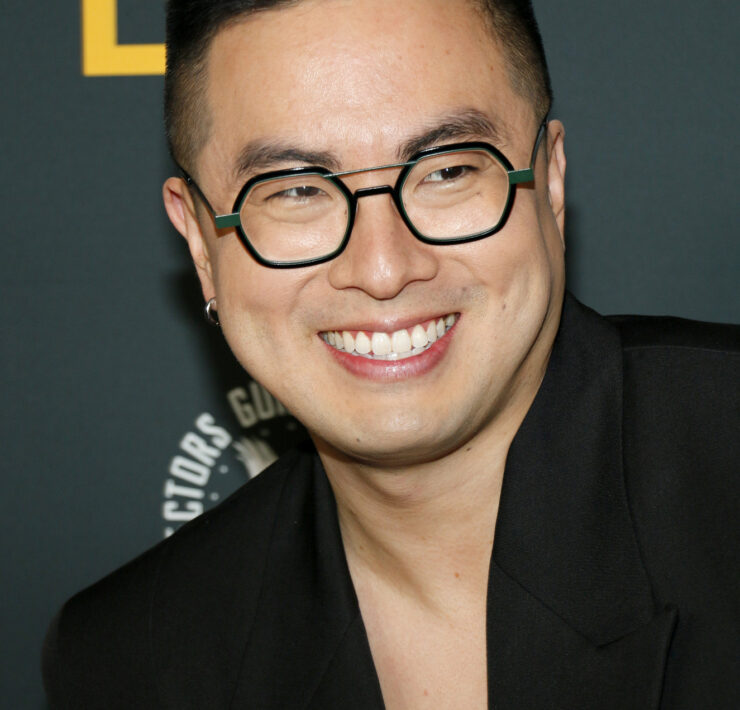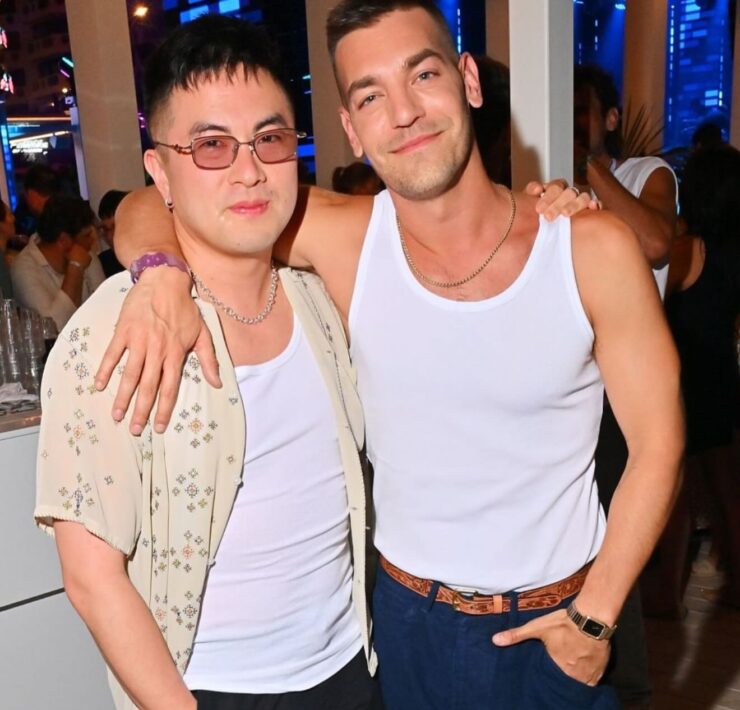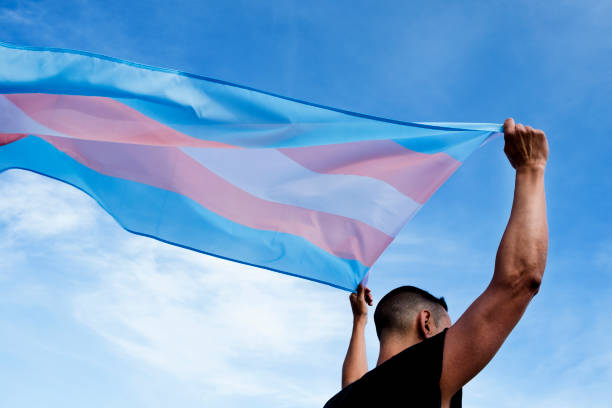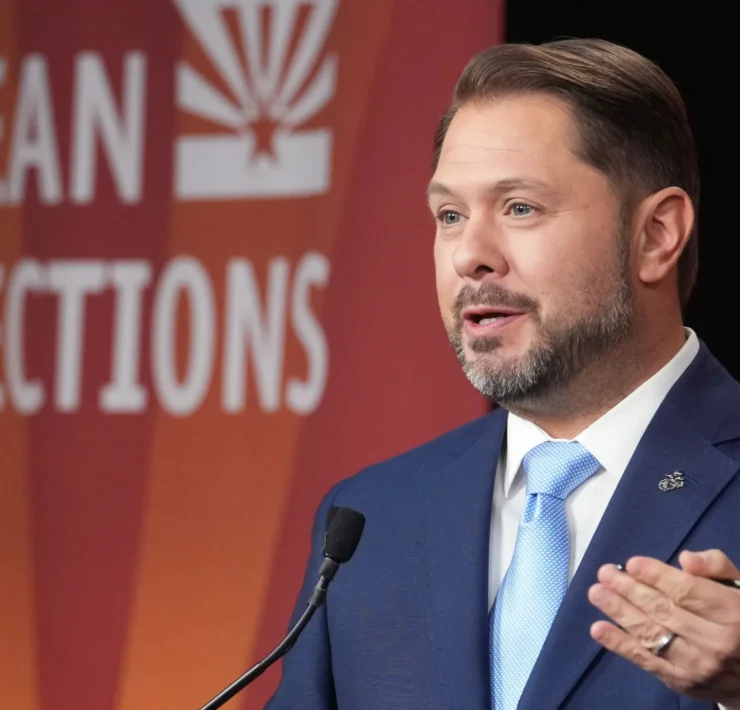Calling All ‘Allies’: Step it up

We need allies It’s an election year, and our queerness, our LGBTQ+ people, and especially our QTPOC siblings, are being used as political kindling to fuel the voting fire. For those who have been self-identifying as an Ally, it is time you step it up!
There are so many people who say they are LGBTQ+ allies, but what does that mean, and why does it kind of feel gross? There seems to be a sense of entitlement amongst cis-straight people claiming LGBTQ+ allyship, especially if they can profit off of it. An emotional whiplash happens when someone claims allyship but, in reality, isn’t.
Idea: Queer people create an Ally Counsel for the straights to apply for Ally status. Too many under-informed people think they can own stock in our culture—an example of their dominant cultural privilege. To be an actual ally is fucking hard, and it’s not just for Pride month or your social media presence.
We need to get comfortable naming false allyship when we see it and holding those false allies accountable. Like when your parents say they “support you” but don’t stand up against homo-bi-transphobic family members at Thanksgiving, Or the classic example of that straight girl with a “gay bestie” who “loves the gays” takes up a lot of space at Pride, and has her bachelorette party at a gay bar. Yet, she only dates Republicans; her boyfriend hates her “gay bestie,” and she makes excuses for her harmful choices to LGBTQ+ people. This is not allyship; this is gaslighting and it’s fucking toxic.
Issues with People Self-Identifying as Allies
Kim Kardashian is an excellent example of this. In June 2021, Kim Kardashian’s only pride tweet was advertising her virtual game. In the tweet, she stated, “Happy Pride Month! I love how there are so many ways to express yourself in my game!” This was an advertisement for her obtuse virtual game Kim Kardashian: Hollywood, where you with the tagline “create your own aspiring celebrity and rise to fame and fortune!” and has absolutely nothing to do with LGBTQ+ pride or queer culture. And Let’s not forget that for three years, Kim collaborated with anti-LGBTQ+ ex-president Donald Trump on her Ride Hailing Program. This isn’t how Allyship works. You can’t be an ally when it is convenient while supporting and upholding the sources of LGBTQ+ oppression.
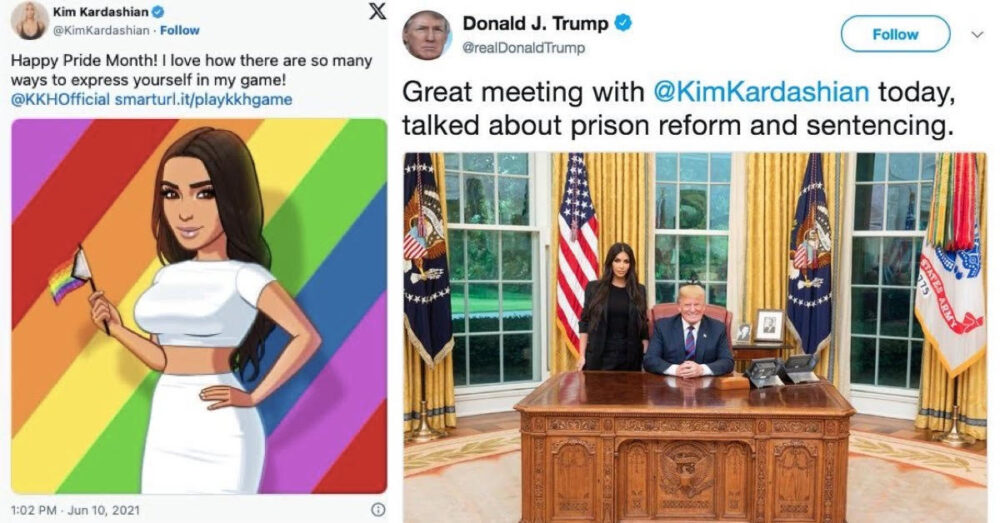
Trevor Project Reframe
The Trevor Project shares how an important advocate reframe is needed in our communities and our culture. They noted an ally as “a person who supports LGBTQ+ people. Many LGBTQ+ people now prefer and encourage the use of the term advocate/accomplice instead, given that they often see ally used as a label that anyone could passively obtain. Others are working to reframe ‘ally’ to its verb form, which requires work and effort.
Ally Defined
Simply put, an Ally is someone (typically straight cisgender) who has dominant cultural privilege. Allies are aware of their power, influence, and access to resources. LGBTQ+ allies use their access to privilege as a platform for Queer activism by advocating for LGBTQ+ people with less power. An Ally self-educates, speaks out, advocates, and possesses an authentic concern for LGBTQ+ folks. Nowadays, it is far too easy for someone to call themselves an Ally without understanding what that actually takes.
Advocate Allies
In a 2016 interview with U.S. Magazine, former NBA player Dwyane Wade discussed his experience as a parent to his trans child. Wade states, “I watched my son, from day one, become into who she now eventually come into. And for me … nothing changes in my love. Nothing changes in my responsibilities. … Me and my wife (Gabrielle Union) are having conversations about us noticing that (Zion) wasn’t on the boy vibe that [my son] Zaire was on. And I had to look at myself in the mirror and say, ‘What if your son comes home and tell(s) you he’s gay? What are you going to do? How are you going to be? How are you going to act?’ It ain’t about him. He knows who he is. It’s about you. Who are you?”
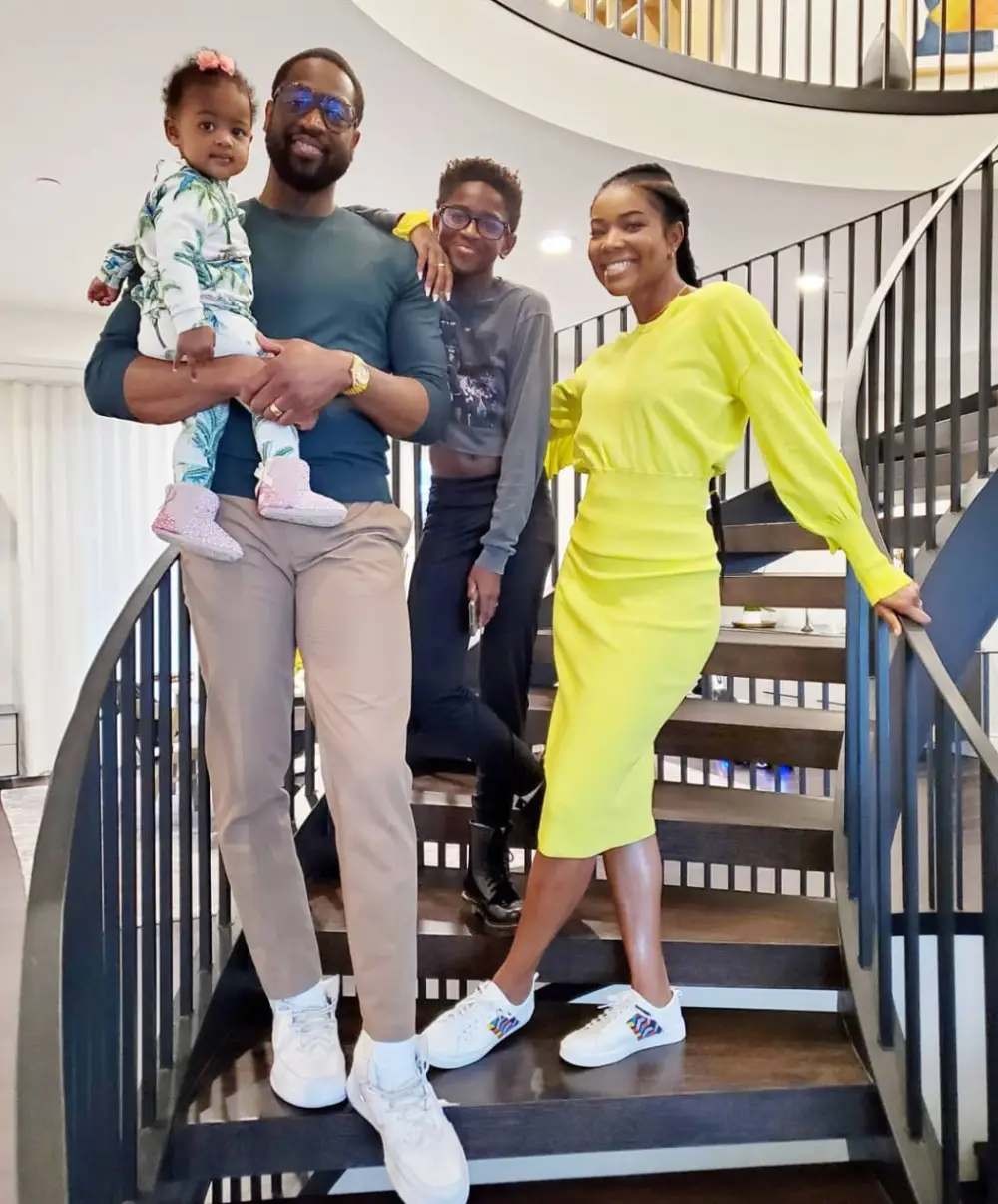
Wade went on to clap back against criticism of his preteen wearing fake nails in a November 2019 family photo. “All these people that’s out there saying these things, look at yourself,” the athlete says. “Understand that you’re the one that’s got the issues. You’re the one that’s got the problem. It’s not the kids, it’s not the ones who decide, ‘Yeah, you born a certain way, you gotta be that way.’ That’s not life.”
The key dynamic here is not only Wade stepping up to the plate as a parent but also as an advocate and ally by challenging social expectations of him. His identity is completely fused with traditional heteronormative masculinity as he is an NBA basketball player, a public figure with a substantial public presence. The amount of pressure on him to uphold misogynistic, patriarchal, and CIS heteronormative values is immense. He took his platform, confronted that pressure, and created space for trans visibility. That’s stepping it up.
Judy Shepherd is another excellent example of a peak Ally. Following the horrific gay hate crime murder of her son, Matthew Shepard, in 1998, Judy formed the Matthew Shepard Foundation. She has dedicated her life to advocacy and allyship using her platform created by the visibility of Matthew’s death. The Matthew Shepard Foundation empowers individuals to embrace human dignity and diversity through outreach, advocacy, and resource programs.
To be an effective ally, you don’t have to change systems of oppression. A wide array of behaviors and actions fall within effective allyship. Bowen Yang demonstrated a solid example of a small-scale Ally action that had a significant impact through the effective use of his platform. When Dave Chapelle made a surprise appearance at the closing of a January 2024 episode of the show, Bowen moved to the end of the stage with clear body language of frustration, arms crossed and scowling. This is a 30-second action that spoke volumes of disapproval of Chapelle’s TERF politics and public anti-trans rhetoric.
You don’t have to be a celebrity or have a huge social media, public, or political platform to be an effective ally. Claiming allyship is a responsibility and needs to be demonstrated through actual tangible advocacy. That can be as small as one-to-one interactions, standing up within family and community. In any regard, to be an ally, one needs to be authentic and not performative. I encourage you to consider four key characteristics of allyship advocacy in your life. How can you make a change for someone in your life?
1: Participation
Participate in LGBTQ+ culture. The first step here is self-education. It is not a queer person’s responsibility to educate you. At this time in queer history, there are thousands of resources online. Google is amazing. Self-education is critical! Research any question you have. Once you have engaged in self-education, please participate in our culture, but remember, you’re a guest. Don’t be that over-the-top bachelorette at a gay bar. The two biggest faux pas straight, cisgender “allies” have in queer spaces are: 1. demanding we educate them 2. straight girl bachelorette parties at the gay club … we are not here for your drunken entertainment. You are taking up space that is not yours.
2: Speaking out
It comes down to being an upstander versus a bystander. A bystander watches things go by without saying or doing anything to stop it. An upstander is someone who speaks up and advocates at the moment for someone with less authority, power, or control in the situation. This is not just in moments where you’re standing up for an LGBTQ+ person on the subway, on the street, or in family gatherings. This also happens when there is no LGBTQ+ person in the room and you hear cisgender heterosexual nonsense taking place … you speak up against the oppression that’s being perpetuated. Again, being an ally is not comfortable, and in moments like this, you will be pressed by those people who will say, ‘Come on, you know I’m just joking,’ or, ‘There’s no one gay here; It’s OK.’ It’s not OK, and you have to stand up in those moments, or you’re not an ally. Allies have skin in the game, and they are hurt by homo-bi-transphobia too.
3: Effective use of privilege
Every human has some element of privilege. Those with the most privilege are cisgender, heterosexual, white, upper-middle-class (or wealthier) men with no disabuse. We are all organized in a cascading order underneath that identity. And there are people with more privilege above us and people with less privilege below us.
As long as we’re always advocating for people with less privilege than us, then we are effectively using our privilege for change. So take a minute and examine where in life you have privilege. What platform do you have? What resources do you have? What abilities do you have to advocate for people with less than your mark? How can you take up space in that privilege to make change?
4: Facilitating Social Justice Change
Sometimes, we get lost and think we need large platforms to make change. However, when we look at the scale of change from one-to-one interactions to political change, there’s a spectrum and we all have opportunities to facilitate change. Change is typically denoted by a sense of holding tension, regardless of scale. Holding that tension makes change by persistently challenging normative values that are inherently homo-bi-transphobic to facilitate inclusivity and equity.
That tension never feels good, but it gets easier over time, and it’s helpful to think in those little moments that you’re contributing to more significant systemic change in social justice. Allies need to get comfortable with being uncomfortable, which is the cornerstone of allyship advocacy.
So Let’s Step it Up!
To all my ally readers, this can be a helpful rubric of accountability if you continue to call yourself an ally.
To all my LGBTQ+ readers and queer siblings, we have a gift of empathy for existing in the margins and needing strong, cis-straight allies like Dwyane Wade and Judy Shepard. With that empathy, we must remember that allyship is not a one-way street with us on the receiving end. Effective allyship and advocacy also need to take place with anyone with less privilege or power than yourself, like Bowen in his stance against transphobia. Consider the composition of your identity, your social privilege, and how you can be an effective ally to anyone with less cultural standing than you.
This year is going to fucking hard! Consider how our day-to-day actions can contribute to more considerable systemic change.
All graphics courtesy of Jesse Proia



